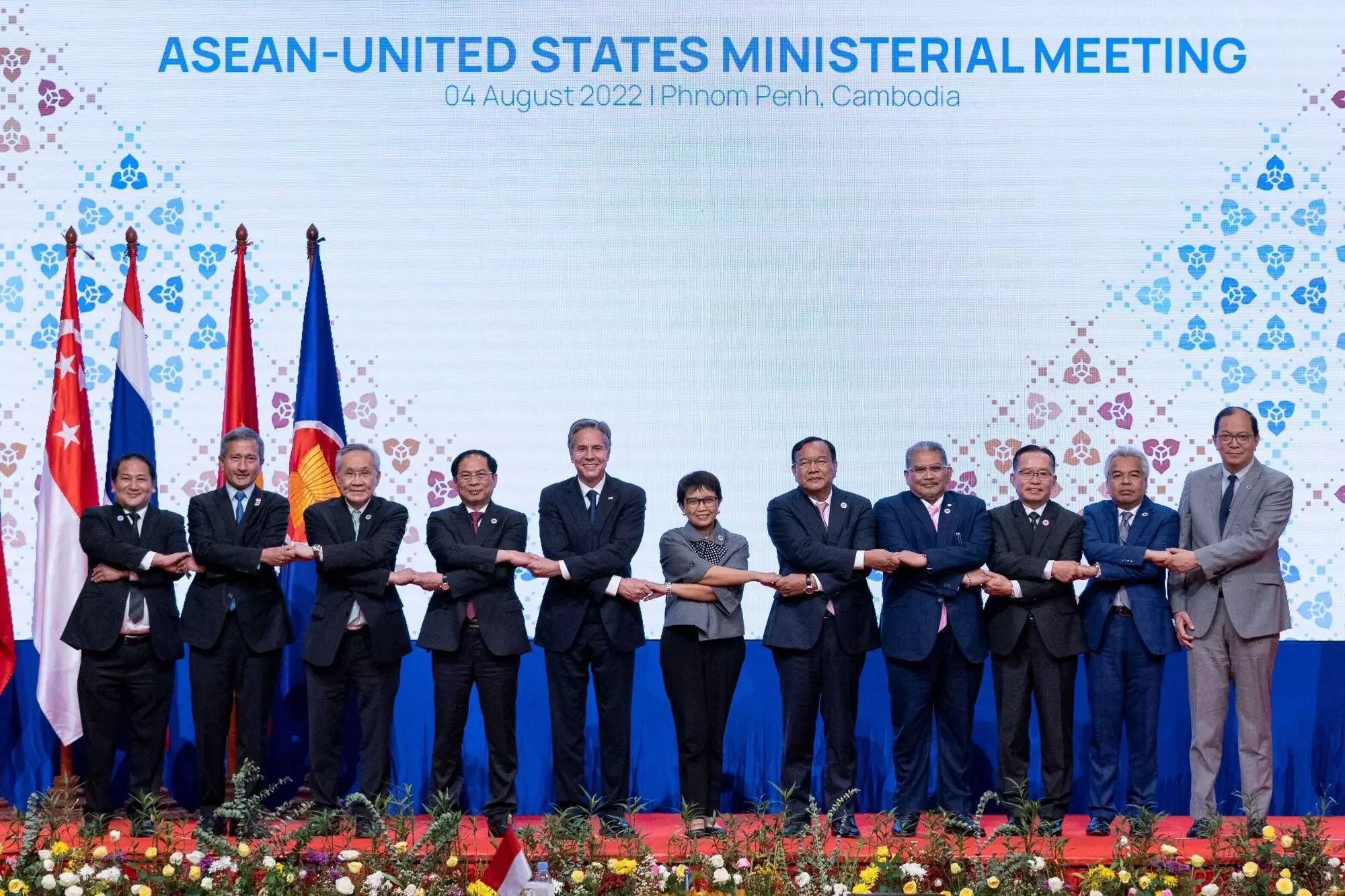India's FTA with Singapore and ASEAN needs to be reviewed, GTRI
Asean countries negotiate their individual tariff arrangement, while India offered a single tariff schedule to all
image for illustrative purpose

Hyderabad: The Global Trade Research Initiative (GTRI) on Sunday suggested that the government study the bilateral free trade agreement (FTA) with Singapore and as part of the Asean bloc together while reviewing its trade pact with the 10-nation grouping. Singapore is a member of 10-nation Asean bloc with which India has a free trade agreement in goods since 2010.
Separately, India also implemented a comprehensive FTA with Singapore in 2005. GTRI also suggested a similar exercise with Thailand, another member of Association of Southeast Asian Nations (Asean). India signed a limited free trade pact with Thailand in 2006. These suggestions assume significance as India and Asean have agreed to review their trade pact and are aiming to conclude the exercise by 2025. Asean members are Brunei Darussalam, Cambodia, Indonesia, Lao PDR, Malaysia, Myanmar, the Philippines, Singapore, Thailand, Vietnam. Out of these, five countries - Indonesia, Singapore, Malaysia, Thailand, Vietnam - account for 92.7 per cent of India's exports and 97.4 per cent imports from Asean.
India's export to Asean was $19.1 billion in 2008-09 and it increased to $44 billion in 2022-23. On the other hand, imports from the 10-nation bloc rose to $87.6 billion in the last fiscal as against $26.2 billion in 2008-09. “India has a separate FTA with Singapore with more relaxed rules of origin of products. The two FTAs may be studied together. India has a separate FTA with Thailand called early harvest scheme (EHS) with relaxed rules of origin than what India-Asean FTA offers. Substantial imports may be happening through EHS. The two FTAs may be studied together,” GTRI said in its report.
With Indonesia, the report said that in 2022-23, India imported a total of $28.8 billion worth of goods and the primary imports included coal ($14.4 billion), which consisted of both steam coal ($13.7 billion) and coking coal ($0.7 billion). Additionally, India imported palm oil worth $5.6 billion and copper ore worth $0.9 billion from Indonesia. These products are needed by India, most imports take place at MFN (most favoured nation) zero duty, it said adding the FTA review may not be helpful to cut such imports. “Coal imports have increased by 121 per cent in the past one year alone and most coal is steam coal, available in abundance in India. India should focus on using local coal. Offering MSP (minimum support price) on mustard and other similar oils will cut domestic prices and wean people away from inferior palm oil gradually,” GTRI Co-Founder Ajay Srivastava said.
With Singapore, the report said that electronics constituted a significant portion of imports, totalling $7.2 billion in the last fiscal, including computers ($ 1.7 billion) and integrated circuits ($1.5 billion). Other notable imports included plastics, iron and steel, gold, and a smaller amount of fertilizers. “Singapore does not produce coal, iron, steel, or fertilizers. Firms may be trans shipping these from Singapore. But this adds to cost and is bad business. Such imports must be out of the FTA, but need investigation why they are happening in the first place. Rules of Origins may be checked for use of value addition norms for electronics products, gold etc,” he said.
Further the country's imports from Malaysia stood at $12.7 billion in 2022-23 and the main goods included palm oil ($ 3.5 billion), petroleum products ($ 3.2 billion), and electronics ($ 2.2 billion) and most of these imports are commodities needed by India and the FTA review may not be helpful to cut most of such imports, GTRI said. It added that Asean, unlike the European Union, operates as a group of countries with an FTA rather than a customs union. This means that each Asean member sets its own tariff schedule instead of having a shared one.
In FTA negotiations, each Asean country typically negotiates its own tariff arrangement with a partner like India. Ideally, India should have reciprocated by offering a different tariff schedules for each Asean member, taking into account the specific sensitivities of trade with each country, it said. “Instead, India, on the insistence of Asean offered a single tariff schedule that applies to all the members. This simplifies the process but limits the effectiveness of India's exclusion list. It does not address the specific sensitivities with individual Asean countries as effectively as separate schedules would,” the report added.

